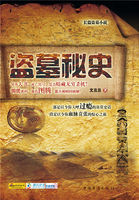subjects brought in hardly more than before.In order to satisfy mounting requirements, the noble masters resorted to the same means as were practised by the princes; the peasantry was being robbed by the masters with greater dexterity every year.The serfs were being wrung dry.The bondsmen were burdened with ever new payments of various descriptions upon every possible occasion.Serf labour, dues, ground rents, land sale taxes, death taxes, protection moneys and so on, were increased at will in spite of old agreements.
justice was denied or sold for money, and wherever the knight could not obtain the peasant's money otherwise, he threw him into the tower without much ado, and compelled him to pay ransom.
With the other classes, the lower nobility courted no friendly relations either.Vassal knights strove to become vassals of the empire;vassals of the empire strove to become independent.This led to incessant conflicts with the princes.The knighthood looked upon the clergy with their resplendent grandeur as upon a powerful but superfluous class.It envied them their large estates and their riches held secure by celibacy and the church constitution.With the cities, the knighthood was continually on the war path; it owed them money, it fed on plundering their territory, on robbing their merchants, on the ransom paid for prisoners captured in conflicts.The struggle of the knighthood against all these estates became more vehement as the estates themselves began to realise that the money question was a life problem for them.
The clergy, representatives of the ideology of mediaeval feudalism, felt the influence of the historic transformation no less acutely.The invention of the art of printing, and the requirements of extended commerce, robbed the clergy not only of its monopoly of reading and writing, but also of that of higher education.Division of labour was being introduced also into the realm of intellectual work.The newly arising class of jurists drove the clergy out of a series of very influential positions.The clergy was also beginning to become largely superfluous, and it acknowledged this fact by growing lazier and more ignorant.The more superfluous it became, the more it grew in numbers, thanks to the enormous riches which it still kept on augmenting by fair means or foul.
The clergy was divided into two distinct groups.The feudal hierarchy of the clergy formed the aristocratic group -- bishops and archbishops, abbots, priors and other prelates.These high church dignitaries were either imperial princes themselves, or they reigned as vassals of other princes over large areas with numerous serfs and bondsmen.They not only exploited their subjects as recklessly as the knighthood and the princes, but they practised this in an even more shameful manner.They used not only brutal force, but all the intrigues of religion as well; not only the horrors of the rack, but also the horror of excommunication, or refusal of absolution;they used all the intricacies of the confessional in order to extract from their subjects the last penny, or to increase the estates of the church.
Forging of documents was a widespread and beloved means of extortion in the hands of those worthy men, who, receiving from their subjects feudal payments, taxes and tithes, were still in constant need of money.The manufacture of miracle-producing saints' effigies and relics, the organisation of praying-centres endowed with the power of salvation, the trade in indulgences was resorted to in order to squeeze more payments out of the people.All this was practised long and with not little success.
The prelates and their numerous gendarmerie of monks which grew with the spread of political and religious baiting, were the objects of hatred not only of the people but also of the nobility.Being directly under the empire, the prelates were in the way of the princes.The fast living of the corpulent bishops and abbots with their army of monks, roused the envy of the nobility and the indignation of the people who bore the burden.Hatred was intensified by the fact that the behaviour of the clergy was a slap in the face of their own preaching.
The plebeian faction of the clergy consisted of preachers, rural and urban.The preachers were outside the feudal hierarchy of the church and participated in none of its riches.Their activities were less rigorously controlled and, important as they were for the church, they were for the moment far less indispensable than the police services of the barracked monks.Consequently, they were paid much less than the monks, and their prebends were far from lucrative.Being of a middle-class or plebeian origin, they were nearer to the life of the masses, thus being able to retain middle-class and plebeian sympathies, in spite of their status as clergy.While the participation of the monks in the movements of their time was the exception, that of the plebeian clergy was the rule.They gave the movement its theorists and ideologists, and many of them, representatives of the plebeians and peasants, died on the scaffold.The hatred of the masses for the clergy seldom touched this group.
What the emperor was to the princes and nobility, the pope was to the higher and lower clergy.As the emperor received the "common penny,"the imperial taxes, so the pope was paid the general church taxes, out of which he defrayed the expenses of the luxurious Roman court.In no country were his taxes collected with such conscientiousness and rigour as in Germany, due to the power and the number of the clergy.The annates were collected with particular severity when a bishopric was to become vacant.With the growth of the court's demands, new means for raising revenues were invented, such as the traffic in relics and indulgences, jubilee collections, etc.















